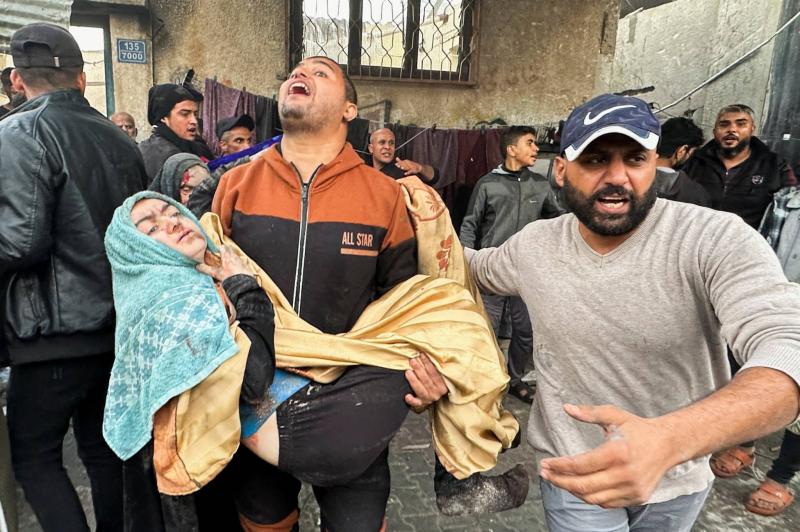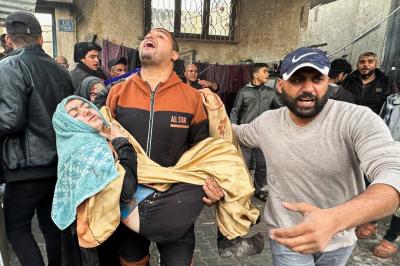Ten-year-old Razan Shabat plays with dolls on a hospital bed in Gaza, her leg immobilized in a splint and marks of injuries on her face. She is unaware that her mother, father, and siblings were killed in the airstrike that injured her. The little girl is one of a growing number of children in Gaza who have lost their parents, and in some cases, their entire families, amid the war between Israel and Hamas, with distant relatives, friends, or even strangers now caring for them.
Raja Al-Jarrou, married to a relative of Razan, is taking care of the girl at Al-Aqsa Martyrs Hospital in Deir al-Balah in central Gaza. She noted that the child does not know she has lost her family, and they are now responsible for her. Despite the significant injury on her forehead and scars on her brow and cheek, Razan's face lit up with a big smile as she played with two pink dolls, rocking them as a mother would her child.
Her smile vanished when asked about what she missed most in the hospital. She suddenly expressed sadness, saying she missed her family and wanted to see them. Her left leg was covered in a cast from top to bottom. She added that she underwent surgery on her leg and four surgeries on her skull, stating that she is recovering and feeling better.
Younes Al-Ajla, a physician involved in Razan's care, mentioned that she and several other children were brought to the hospital alone. He added that many children coming to Al-Aqsa Martyrs Hospital are so lost that the medical staff write the word "unknown" on their admission files until a relative identifies them. This was the case for Razan for several days.
James Elder, spokesperson for UNICEF, said it is difficult to determine how many children in Gaza have become orphans due to the significant number of casualties and dire conditions on the ground. He noted, "There are many children who have lost their parents, but worse still, they have lost entire families." He continued that relatives or neighbors usually step up to care for orphans, but there have been severe cases where no one was alive to look after the children.
He recounted meeting children, often in hospitals due to injuries sustained when their homes were bombed, who have lost their mothers, fathers, grandparents, aunt, uncle, cousins, and siblings—everyone. He emphasized that when a child is the last surviving member of a family, it indicates a serious problem.
Gemma Connell, a UN relief worker visiting the hospital in Deir al-Balah, approached a little girl and sat down in front of her as the child sat on the ground with bandaged feet. The girl appeared in shock and did not respond. Connell noted that she met many children suffering from trauma, who were wounded, hungry, scared, and in many cases lost their parents.
In a separate phone interview on Monday, she said, "Many of them have seen their siblings die, their parents die." She added, "I met a girl about four years old yesterday, who couldn't speak because of what she had witnessed. She couldn't even say her name. Her eyes were wide like those of a deer caught in car headlights... This is the state of children in Gaza, it seems."




